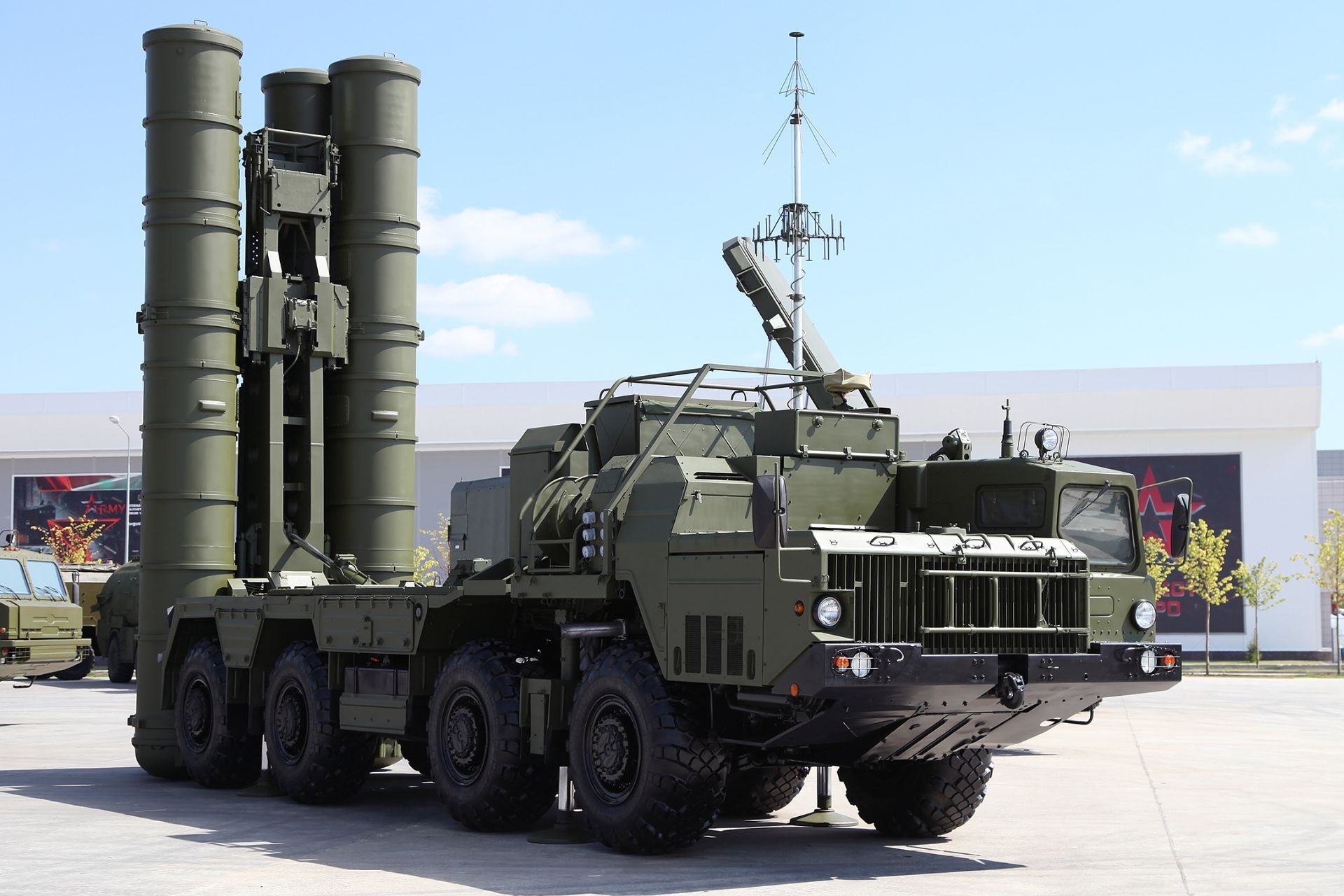Breaking News
India and Russia Set for Final S-400 Delivery in 2025 Despite Ukraine War.
In 2025, Russia is set to complete the delivery of its S-400 air defense systems to India, as recently confirmed by the Chief of the Indian Air Force, Air Marshal Amar Preet Singh, on October 4, 2024. This acquisition, finalized in 2018 for $5.43 billion, includes providing 20 units intended to equip five air defense squadrons. However, delays due to the war in Ukraine and international sanctions have hindered initial delivery timelines.

With missiles ranging from 40 to 400 km, the S-400 can engage up to 36 targets simultaneously at altitudes reaching 30 km (Picture source: Vitaly V. Kuzmin)
The S-400 Triumf, also known by NATO as the SA-21 Growler, is a long-range surface-to-air missile system developed by Russia to intercept a broad array of airborne threats, including strategic and tactical aircraft, ballistic and cruise missiles, and stealth targets. With missiles ranging from 40 to 400 km, the system can engage up to 36 targets simultaneously at altitudes reaching 30 km, incorporating advanced detection technologies such as the 92N2E Grave Stone tracking radar and the 96L6 Cheese Board acquisition radar.
The S-400 utilizes various missile types, including the 9M96E and 40N6E, enabling layered air defense against diverse threats. Its mobile platform, towed by vehicles like the BAZ-6402-015, offers operational flexibility, while its 55K6E command post on a Ural 532301 truck coordinates air surveillance, threat prioritization, and battery management. Additionally, the system works with specialized radars, such as the Nebo SVU for stealth detection, and is compatible with legacy S-300 missiles, ensuring modularity and resilience in jamming environments.
The initial S-400 units were delivered progressively, beginning in December 2021. To date, India has received three squadrons, strategically deployed along its borders with Pakistan and China as part of a deterrent strategy aimed at enhancing territorial security. These deployments enable India to respond swiftly to potential threats in a region with historical tensions.
Delays in delivery stem partly from logistical challenges within the supply and transport chains, exacerbated by the international context and the Russo-Ukrainian conflict. The S-400, designed for medium- and long-range air defense, is a critical asset in Russia's arsenal, capable of neutralizing targets at distances from 120 to 400 kilometers. Since its introduction in 2006, the system has been used in various operational theaters, including Syria, and more recently, the conflict in Ukraine.
Delivery to India is further overshadowed by revelations from the "BaumankaLeaks," a series of disclosures from the cyber activist group Cyber Resistance in collaboration with InformNapalm, an international intelligence community. In July 2024, this group released confidential documents exposing sensitive details of Russo-Indian defense contracts, including the S-400. Originating from hacked emails of senior Russian officials, these leaks reveal specific codes, component quantities, and munitions planned for India.
Signed during a 2018 visit by Vladimir Putin to India, the S-400 Triumf contract marked a milestone in military cooperation between the two nations and facilitated enhanced training for Indian personnel. Despite the delays caused by Russia’s engagements in Ukraine, Moscow remains committed to completing the deliveries, underscoring its determination to maintain influence among strategic partners such as India.
These disclosures raise questions about the security of Russia’s military information, exposing potential risks for its partners due to the sensitive nature of defense contracts amid geopolitical tensions. Correspondence from a high-ranking Russian defense official, Vladimir Chervakov, validates the complete S-400 inventory designated for India, highlighting the inherent risks of collaboration with Russia in defense matters under increasing external and internal pressures.
Russia’s continued delivery of S-400 systems to India, despite the ongoing conflict in Ukraine, is notable, as Moscow might prioritize resources to strengthen its military presence in Ukraine and bolster domestic defense. Nonetheless, this situation emphasizes Russia’s strategic priorities to uphold its international commitments and preserve essential alliances, particularly with India. India, adopting a neutral stance and pursuing a policy of multi-alignment, carefully balances relationships with global powers, leveraging military cooperation with Russia while remaining uninvolved in the Ukrainian conflict. Completing the S-400 deliveries to India by 2025 is a crucial step in Russo-Indian cooperation, despite logistical and political challenges encountered.


























